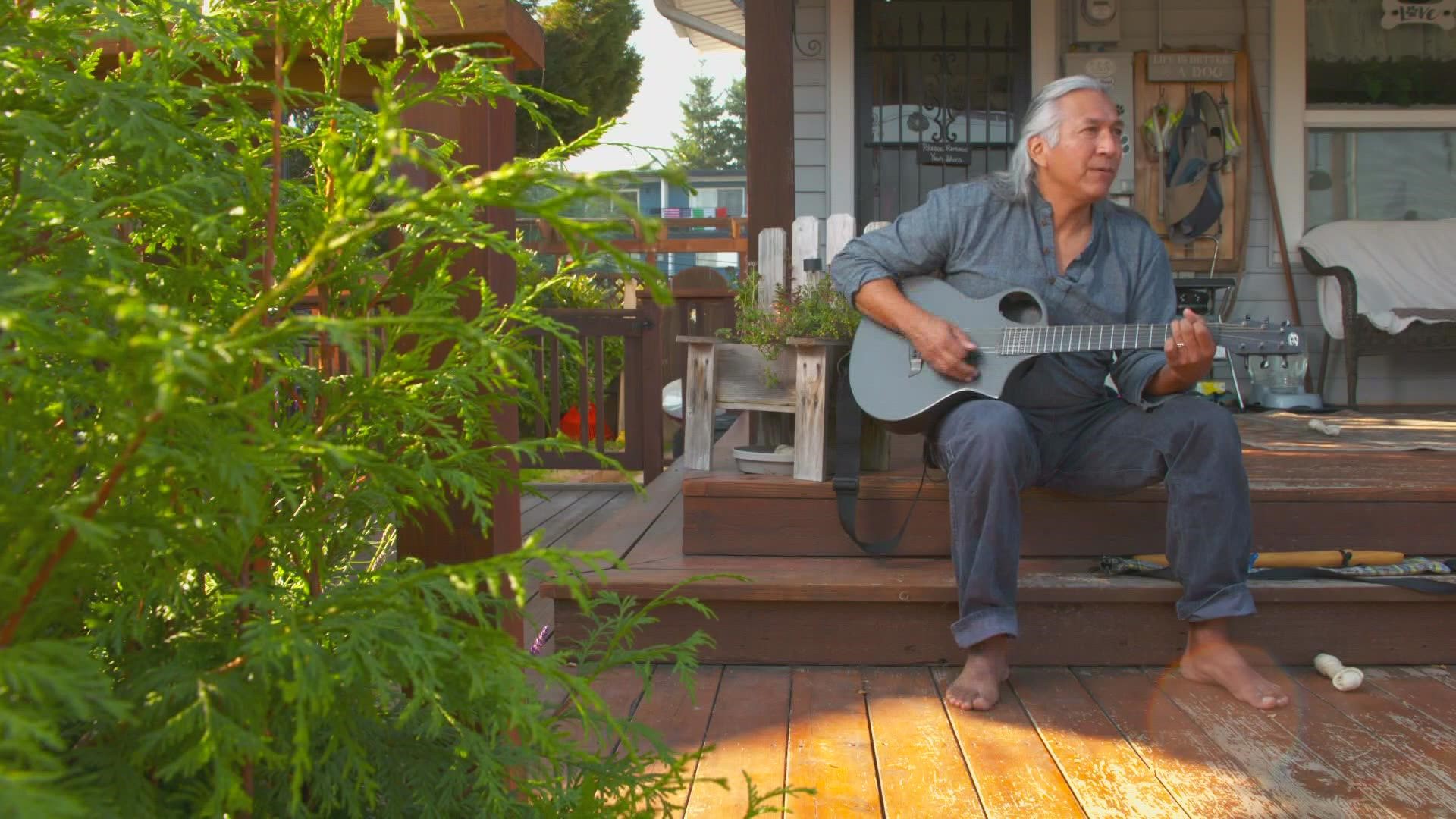TACOMA, Wash. — From a back porch in Tacoma, traditional Native chants blend with the sound of an acoustic guitar. Musician Gene Tagaban is on a lifelong mission to answer one question.
“Who the heck am I? What am I doing? What path am I going to be on?”
The closest he’s gotten to an answer has come through music.
“As we sing our songs, that’s what we’re asking – we’re expressing ourselves and the pride and love of who we are. But we’re also reaching out to the people and asking ‘who are you,’” Tagaban said.
Tagaban is a founding member of the band Khu.eex. At a distance, it may sound like modern rock. But listen closer and you get elements of cultures that are thousands of years old. His culture is one of storytelling - of passing generational knowledge - and that’s the point of this band.
Bringing the lessons of their ancestors to new audiences. Stories of pain and healing are captured in song and delivered on stage and in albums. From “Sunrise Song,” which is written as a celebration of a new day, to the track “Song of the Water Protectors,” which tells the struggle of tribal members protesting the Dakota Access Pipeline.
“And that’s the foundation of who we are, the culture is the foundation of who we are, if we ever get lost,” Tagaban said. “If you ever get lost or sidetracked there’s a foundation there holding you up.”
What sets this band apart is its members. Most are Native American, representing tribes including the Tlingit, Haida and Blackfoot.
“We bring in the songs, we bring in the stories, we bring in the language within it … we are bringing ourselves to the table. That is who we are.”
Founded in 2013, Khu.eex was born from a chance meeting between bassist Preston Singletary and Rock and Roll Hall of Fame artist Bernie Worrell. Worrell made music history for bringing synth sounds to funk – and late in his life would inspire the Native artists to blend Native sounds with modern music.
His life mission is to preserve and share the learned lessons of his ancestors -something that happens on and off the stage. Tagaban frequently takes his knowledge and lived experiences to a classroom of high school students, specifically Native students.
On a weekday night in north Seattle, there were dozens of students immersed in lessons that, for the most part, you won’t get in a classroom.
“Because it’s not really something we talk about," said Jazell Jenkings, a high school senior. "We don’t get to have these conversations. We don’t talk about this at all in school."
And just like his music, the drum is the backbone of the lessons and the songs.
“I feel like I hold a responsibility to continue on to pass on this knowledge and the ways of teaching the ways of being,” Tagaban said.
A way of life that precedes his music will outlive the band and the fans. Music, for now, gets us closer to an answer to that looming question: who are we, who are you?
“I am a dream," Tagaban said. "I am a living dream of my ancestors. And that’s who I am and they walk with me."

